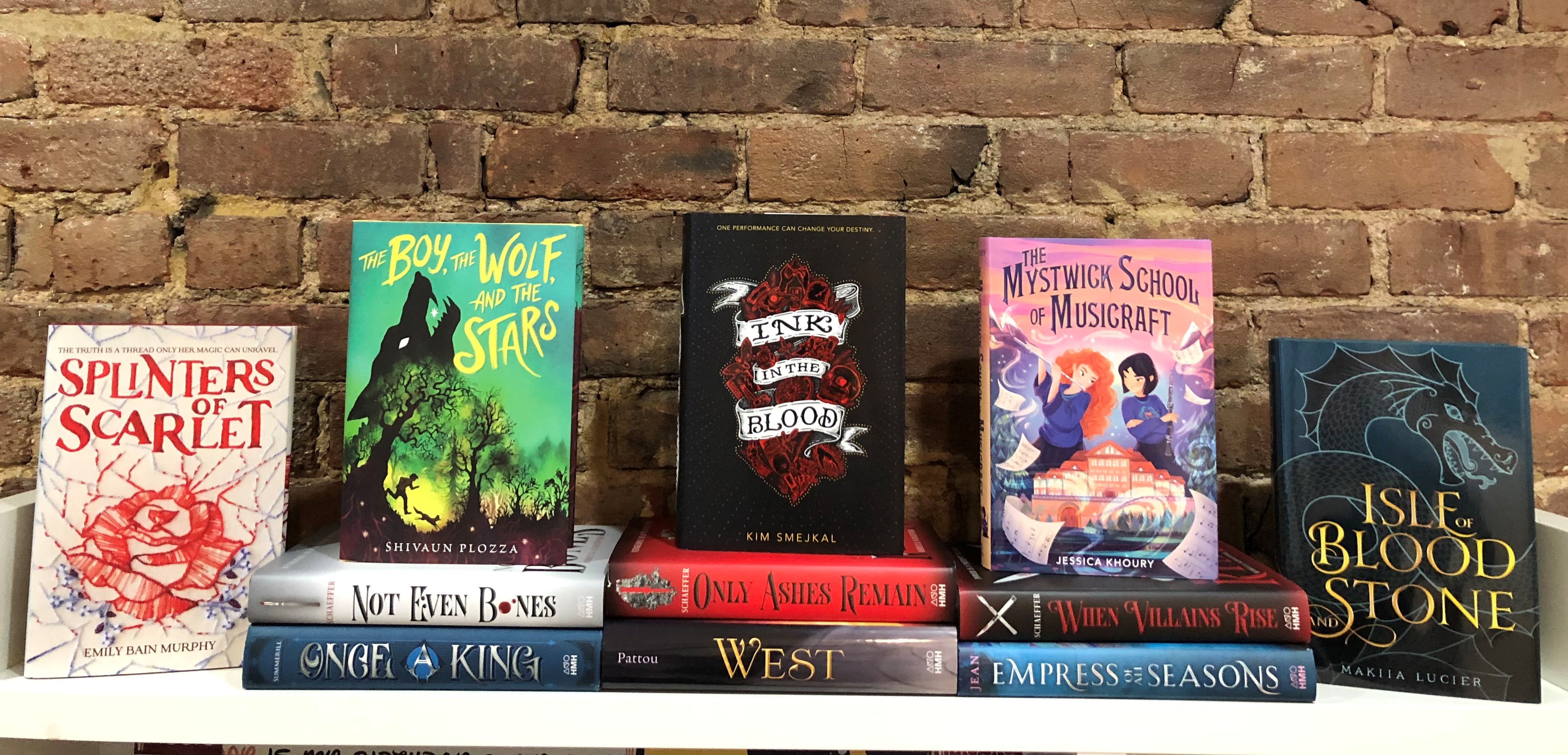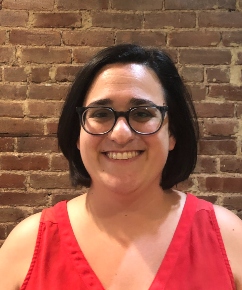A Conversation with Nicole Sclama, English alumna

Nicole Sclama graduated from Catholic University in 2011 with a major in English and a triple minor in Theology, Philosophy, and Medieval & Byzantine Studies. While at Catholic U. she served as the founding President of English Society and on the staff of the student-run literary magazine CRUX. Since graduation she has completed graduate work at The University of Chicago and pursued a career in publishing.
What is your current job/title?
Associate Editor at Houghton Mifflin Harcourt Books for Young Readers. I edit books for 8-12 year olds and teens, mostly in the fantasy genre but I’ve been known to work on a rom com or two.
Why did you choose to study English at Catholic U?
When I first started at CUA, I hadn’t selected a major yet because I wanted to leave my options open. But after a few semesters, I realized I was always signing up for English classes because that’s what I really loved. Getting to read and talk about books all day was like a dream come true, and it was so inspiring to be surrounded by other people who shared my interests. Much better than in high school when half the class wouldn’t even read the book!
You completed a Masters degree at the University of Chicago after graduating - how/why did you decide to pursue a graduate degree and how has it been important to your career?
After graduating from CUA, I wanted to get my PhD in English lit and work in academia. I got into a nine-month MA program at UChicago, and I intended to use that as a stepping stone to a PhD program. I ultimately decided that’s not what I wanted out of my career, but I did learn a lot about myself and my working style while getting my MA. And, of course, studying literature, particularly the contemporary novel, at the graduate level deepened my understanding of plot structure, character arc, and the novel form as a whole. Editing is a bit like analyzing, so the work I did at UChicago has definitely come in handy while working with authors to perfect their novels.
How did you end up working in publishing? Is this a career path that you'd always been interested in?
I’d never given much thought to publishing until I decided that academia wasn’t for me. At that point, all I knew was that I wanted to stay involved in books in some way. I worked at Barnes & Noble during high school and college and my favorite thing to do was to find the perfect book for a customer when they asked for recommendations. It was actually my mom who suggested I look into publishing as a career option. The thought of not just connecting readers and books, but actually having a hand in creating the books that readers would fall in love with sounded like the perfect choice. My heart has always been in kids’ books—I even ran the children’s section at my B&N after college—so going into books for the younger crowd made sense for me. I did some research about the industry and started to apply for jobs in NYC the summer after I graduated from UChicago, and I’ve been doing it ever since!
What is a typical day on the job like for you?

What did you learn as a English major at Catholic that has continued to serve you well?
I think the most important thing I learned is how to write. When I edit a book, I write an editorial letter to the author explaining what’s working, what’s not, and how to fix any plot holes or problems. When I wrote my first edit letter, I was shocked at how similar it felt to writing a paper. I have to start off with a strong thesis, organize my thoughts so that one idea flows cleanly into the next, and communicate my ideas in a straightforward way so the author has a clear guide for their revision. It takes a lot of work and thought (and sometimes multiple drafts) to write an edit letter, but the training I received at CUA made sure I was prepared.
Do you have any advice for current English majors who are interested in careers in publishing?
Read everything you can. One of the most important parts of my job is knowing the market. I have to know what people are reading and talking about and how a book I want to publish will fit into that landscape. The more you read, the more connected you are to your readers. I also think the most important thing for future editors to know is that you don’t just get to sit quietly and read all day. I thought most of my job would be working directly on books, but I actually find that 75% of my job has nothing to do with editing! There’s a lot of admin and liaising between people both inside and outside the company. You’ll also present at large meetings and be expected to do a lot of networking. If this isn’t your thing, there are other jobs within publishing that you can look into. For example, I’d recommend looking at managing editorial if project management and copyediting sounds interesting, or sales if you want to talk about books to potential readers (i.e. booksellers and buyers who stock bookstores) all day. Editorial might be the most visible department in publishing, but there are so many options to explore.
What are your plans for the future?
I’m actually in the process of making a career change. I’ve been in publishing for about seven years and I recently decided to go back to grad school to get my Masters in Library Science with a concentration in Archives Management. This kind of big change has been scary to think about, but the most important thing I’ve learned since graduating from CUA is that life isn’t a straight line. Sometimes what you thought you always wanted to do (for me, academia and then publishing) isn’t what really makes you happy. And when you realize that, it’s OK to make a change and try something new.
Photo credits: Nicole Sclama
